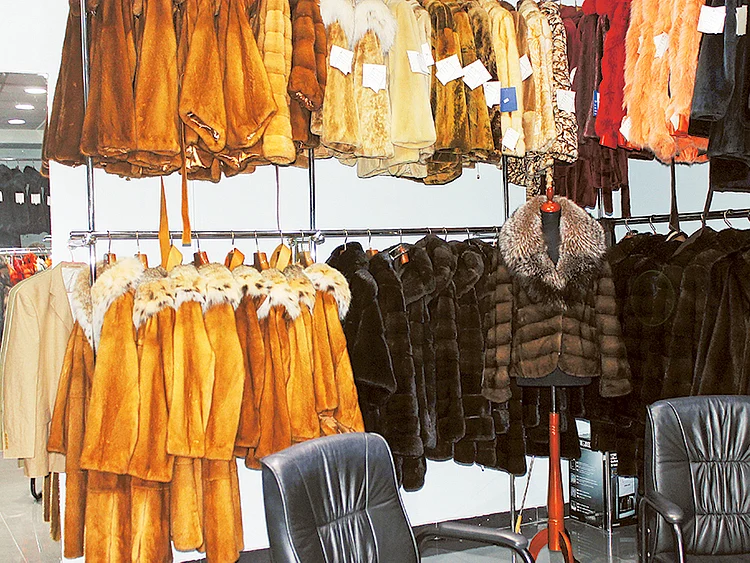Dubai: With inviting eyes and heavily painted faces, the half-dozen East European women who work here are ready to pounce on any newcomer who ventures up to their second-floor domain. They hold court in front of the fur stores here in Al Quwais building in Deira, waiting for customers.
But in the past 12 months, those customers have largely stopped coming. There are few buyers.
Now, the showrooms are overstocked with the finest mink, sable and chinchilla fur, where an average coat costs Dh35,000.
Even selling one would be enough to please any of the store bosses for weeks.
But it wasn’t always like this. Ninety per cent of the fur-based fashion industry in Dubai catered to Russian visitors who come during the winter months back home. They wanted to buy the highest-quality fur at reasonable prices — and without tax. But falling oil prices and sanctions imposed by Western states has left the Russian rouble at a historic low and their economy in a mess.
Before the sanctions, Russians could get .10 to the dirham. Now, it’s .06
With oil prices at a five-year low — half of Russia’s revenue comes from energy exports — the rouble has declined almost 50 per cent against the dollar over the same period.
The declining rouble means less disposable income for Russian visitors. Traditionally known as “big spenders”, most are simply staying at home.
“One more year,” shop owner Chrestos Gitsas said despairingly as he sits behind his desk. That’s how much longer he hopes business will pick up.
The temperature in his showroom is cold — colder than normal air-conditioned shops. Fur is best kept at colder temperatures to prevent it from drying out.
Owning two shops on the second level, Gitsas explains that most of the fur comes from Canada and Scandinavian countries, then sent to Greece for manufacturing. Most shop owners have a second location in Greece — and the repercussions of a poor Russian economy is simply adding to the economic woes of Greeks and the austerity atmosphere in Greece.
“Only the inside lining is hand-stitched,” another shop owner, Haris Vanidis, told Gulf News. According to Vanidis, some stores are turning to cheaper, lower-quality fur from China to cut costs.
“You caught me on a lucky day,” Vanidis said as he helped three customers try on coats. “Normally there is no one here.”
Originally from Greece, Vanidis has been in the fur business in Dubai for 18 years. Even if the Russians were coming, the fur trade is seasonal at best.
“We close for one or two months and open again in September,” shop clerk Jara Kuzdova said. “Dubai is too hot, no one is buying fur.”
Kuzdova uses her downtime to return home to Turkmenistan.
Speaking in their best broken English, the women direct their attention towards the youngest shop keeper, Mila Mardanova as their translator. Teaching English in her home country of Kyrgyzstan, the 23-year old moved to Dubai just six months ago and is already missing home.
“I want to move to Russia with my mother,” Mardanova said. “I like the cold weather better.”
She shows off the most expensive coat in the shop, a soft mink with a neckline of chinchilla. Chinchillas are squirrel-sized animals native to South America and are known for their exceptionally soft, dense fur, making it the most desirable. Alas ... there are no buyers.
Sign up for the Daily Briefing
Get the latest news and updates straight to your inbox
Network Links
GN StoreDownload our app
© Al Nisr Publishing LLC 2025. All rights reserved.
